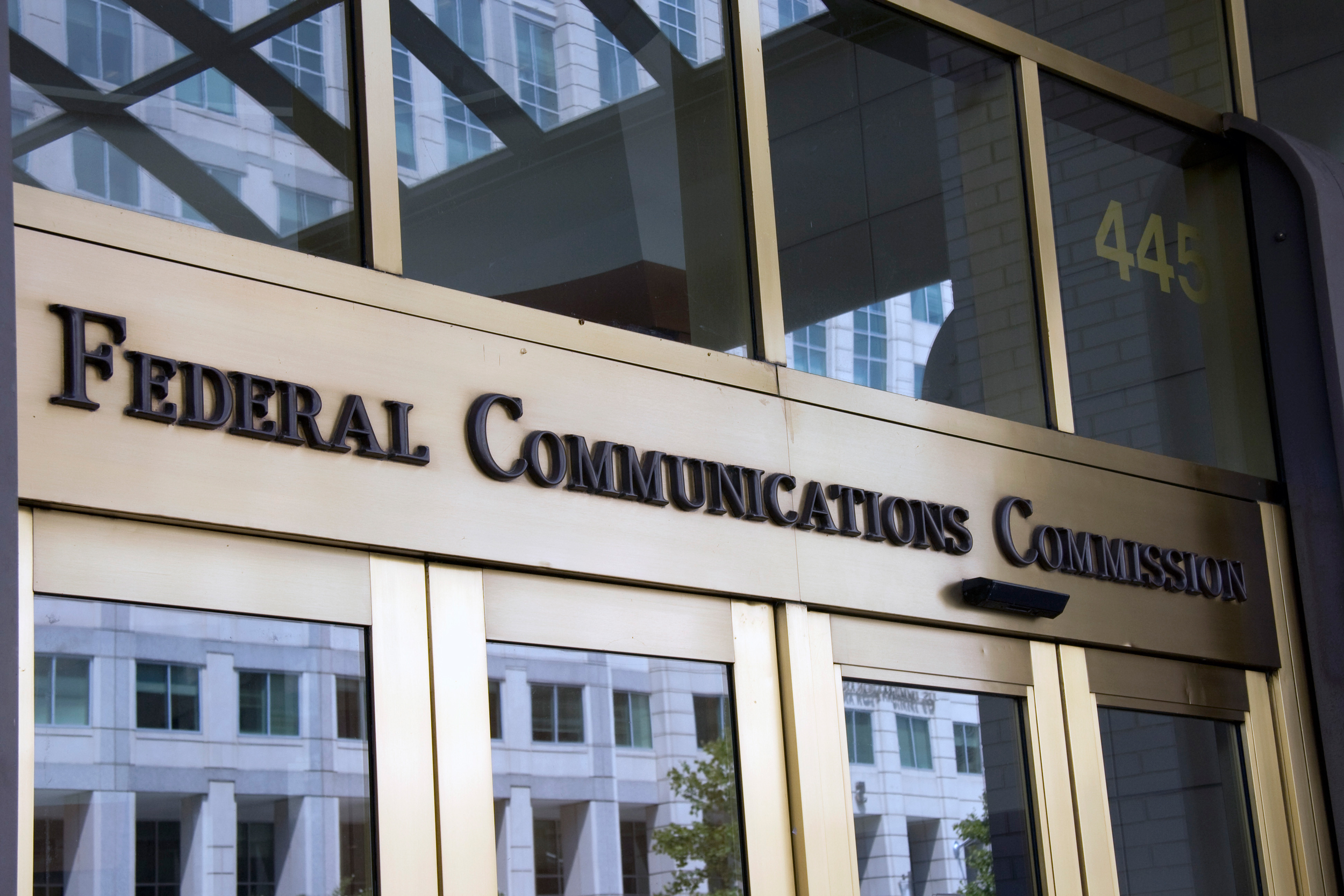Third Circuit, Again, Hears Argument in Challenge to FCC Broadcast Dereg

The smarter way to stay on top of broadcasting and cable industry. Sign up below
You are now subscribed
Your newsletter sign-up was successful
FCC media ownership deregulation took its latest trip to Philadelphia Tuesday (June 11) as the FCC defended its most recent rule changes against a challenge by Prometheus Radio Project in the U.S. Court of Appeals for the Third Circuit.
Jacob Lewis and Matthew Dunne argued for the FCC (25 minutes was scheduled, with NAB getting five minutes in support of the FCC); Cheryl Leanza argued for Prometheus, with Andrew J. Schwartzman and Angela Campbell co-counsel (independent stations got nine minutes and MMTC nine minutes in support of Prometheus), though as usual the court did not hold exactly to those times.
If it felt a little like Groundhog Day, that was because the judges hearing the appeal were Thomas Ambro, Anthony Scirica and Julio Fuentes, the same three that have heard the case since the FCC's media ownership deregulation was first stayed in 2003 following a challenge by, you guessed it, Prometheus. In fact, it is the fourth legal challenge to FCC media ownership rules by effectively the same parties, something Prometheus has pointed out.
Related: Prometheus Tries to Block Ownership Dereg Decision
According to Schwartzman, the judges made it clear they were tired of the case coming back and wanted it resolved.
He said there was no mention of "standing," which had been an issue. That doesn't mean the court couldn't come back with a decision based on standing to bring the suit, but it seemed unlikely it would not go to the arguments in the case.
He said the judges had "lots of problems" with both sides, but gave the FCC a hard time for basing a decision that could effect women and minorities on data about race.
The smarter way to stay on top of broadcasting and cable industry. Sign up below
The argument lasted an hour and 20 minutes, which was better than the first time, which was something like eight hours. Ambrose pointed the time out before the argument in hoping to keep it closer to the allotted time.
Scirica seemed more sympathetic to the FCC arguments, said Schwartzman.
Prometheus, which has been battling media deregulation for at least that decade and a half, filed suit against the FCC's fall 2017 decision, under chairman Ajit Pai, that eliminated the newspaper-broadcast and the radio-TV cross-ownership rules; allowed dual station ownership in markets with fewer than eight independent voices after that duopoly created an opportunity for ownership of two of the top four stations in a market on a case-by-case basis (the FCC was not calling it a waiver); eliminated attribution of joint sales agreements as ownership; and created a diversity incubator program.
In doing so, the FCC reversed a decision by the previous FCC Democratic majority to leave most of the rules in place. Prometheus had challenged that decision, too, not because it had left most of the rules in place, but because Prometheus said it, again, did not sufficiently take diversity into account, which would have led to imposing more regs, not simply leaving most in place. That earlier challenge has yet to be resolved.
Joined by the Media Mobilizing Project, Prometheus wants the court to reverse the 2017 decision and require the FCC to "fully comply" with the court's direction in remanding a previous Quadrennial decision after Prometheus challenged it. That direction was to explicitly consider the impact on whatever it does on diversity. Prometheus said the FCC did not do that.
The FCC is under congressional orders to review its regs every four years to make sure they are in the public interest. In their bids for Tribune stations, both Sinclair and Nexstar looked to take advantage of that deregulation to hold on to more stations.
Prometheus had said that the Pai FCC failed to respond to the Third Circuit's direction in remanding a previous attempt to deregulate and that it get better data on ownership diversity before deregulating.
The FCC has told the Third Circuit before, and did again, that it did gauge the impact of its 2017 broadcast deregulation on media ownership diversity and found it would have “no material impact.”
Indicating, Goldilocks-like, that its decision was neither too regulatory nor too deregulatory, but justifiably “just right,” the FCC told the court that it had reasonably updated its rules in light of increased competition and its public interest analysis, which included that the old rules were doing affirmative harm.
The FCC also told the court its conclusion of no material impact on women and minority ownership diversity was reasonable, supported by “substantial evidence,” and was made with sufficient notice of that finding to the public and stakeholders.
Related: Court Rejcts Petition to Reverse UHF Discount
As to why it loosened rather than eliminated the prohibition on owning two of the top four stations, the FCC told the court that top-four mergers still risk the greatest competitive harm, so it was reasonable to retain it subject to a case-by-case review that would allow such combos if the FCC concluded they served the public interest.
As to the court’s direction to the FCC to get better diversity data, the FCC has essentially said it punted on that because additional studies would not be helpful. “[N]either the record in this proceeding nor the Commission’s own efforts have produced additional study designs that we expect would develop the evidence necessary to support race- and/or gender-conscious measures.”
Contributing editor John Eggerton has been an editor and/or writer on media regulation, legislation and policy for over four decades, including covering the FCC, FTC, Congress, the major media trade associations, and the federal courts. In addition to Multichannel News and Broadcasting + Cable, his work has appeared in Radio World, TV Technology, TV Fax, This Week in Consumer Electronics, Variety and the Encyclopedia Britannica.

